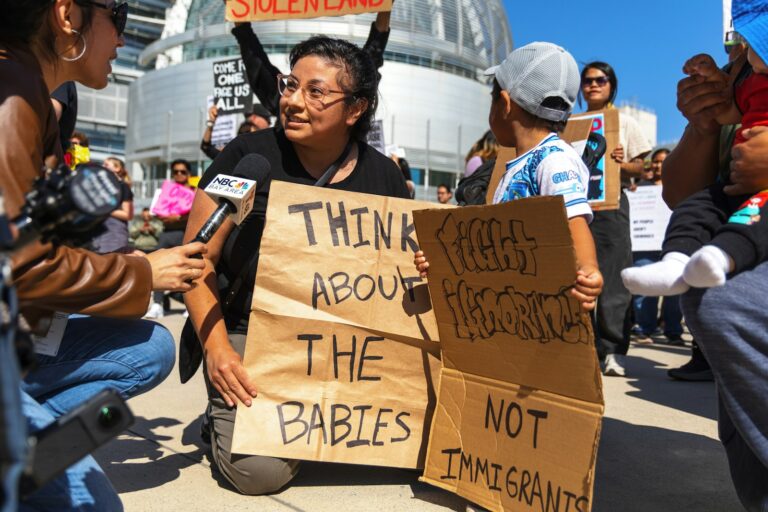Key Takeaways:
- Black churches are stepping up to oppose Trump’s efforts to remove diversity, equity, and inclusion (DEI) initiatives nationwide.
- Companies like Meta and Google reduced their DEI commitments after Trump took office.
- Black faith leaders are organizing boycotts, including against Target, to push back.
- The boycotts are working, with Target reporting a drop in sales.
- Leaders like Jamal Bryant and Rev. Al Sharpton are at the forefront of this movement.
Black Churches Take Charge in DEI Battle
In recent months, the Trump administration has made it clear that diversity, equity, and inclusion (DEI) initiatives are under attack. From ending DEI practices in federal workplaces to warning companies against even celebrating Black History Month, the pushback against DEI has been intense. But Black churches are not backing down. Instead, they’re leading the fight to protect these values and hold corporations accountable.
Major companies like Meta and Google had started focusing on DEI after the murder of George Floyd in 2020. However, soon after Trump returned to office, these companies began rolling back their commitments. This shift has not gone unnoticed—or unchallenged.
Black faith leaders are now spearheading a movement to push back against these changes. One of the most notable efforts is the boycott of Target, a major retailer that has also scaled back its DEI efforts. The boycott, led by Jamal Bryant, a pastor from Georgia, has already made an impact. Over 200,000 people have joined the protest, and Target’s sales have taken a hit.
The Power of the Black Church
Black churches have long been a powerful force in American society, especially when it comes to fighting for justice. Today, they’re using their influence to push back against companies that are abandoning DEI.
Pastor Jamal Bryant, who helped organize the Target boycott, explains why this fight matters. “Diversity, equity, and inclusion is not charity. It’s not a handout,” Bryant said. “The African American community is a valuable partner. So we want to know: If you can take our dollars, how come you won’t stand with us?”
Bryant also pointed out the importance of Black consumers. “You go to a Black church that has 2,000 people, and 1,900 of them are the ones that shop,” he said. This message highlights the economic power of the Black community and the role churches play in mobilizing that power.
Boycotts and Their Impact
The Target boycott is just one example of how Black churches are using their influence. Another company, Dollar General, has also faced backlash for rolling back its DEI initiatives. These boycotts are not just symbolic; they’re having real consequences.
Rev. Al Sharpton, a well-known civil rights activist, agrees with this approach. He compares the current movement to the Montgomery Bus Boycott, which was instrumental in ending segregation on public buses after Rosa Parks’ famous protest. “The success of the Montgomery boycott is that it changed the law,” Sharpton said. “We can’t just do things as a grievance. We must go for their bottom line.”
By targeting companies’ profits, Black churches are proving that they can make a difference.
The Broader Fight for DEI
While the boycotts are effective, the fight for DEI is far from over. Trump’s policies have made it clear that this is not just a local issue but a federal one. The administration has taken aggressive steps to remove DEI initiatives from all levels of government and society.
Some federal departments were even warned against acknowledging Black History Month. This crackdown has left many companies nervous, even those that have “DEI” in their names for unrelated reasons.
According to Adam Clark, a theology professor at Xavier University, the Black church alone cannot overturn these changes. “The attack on DEI is so much broader than the specific companies,” Clark said. “Trump is the culmination of all this type of white aggression against DEI. He has the authority to implement what’s been going on in certain parts of the country and make it federal law. I don’t think the church by itself has the capacity to just overturn everything that’s happening.”
The Road Ahead
While the Black church is a key player in this movement, it’s clear that winning the fight for DEI will require more than boycotts alone. It will take a collective effort from activists, consumers, and policymakers at all levels.
For now, the boycotts are sending a clear message: the Black community will not stand by while companies and governments roll back progress. As long as Black churches continue to lead the charge, there’s hope that DEI will not disappear without a fight.
The power of the Black church lies not only in its spiritual leadership but also in its ability to mobilize people and resources. As Jamal Bryant and others have shown, when Black churches take a stand, companies and governments take notice.
In the end, this movement is about more than just DEI initiatives. It’s about ensuring that the voices and contributions of the Black community are valued and respected. And as long as Black churches are at the forefront of this fight, the push for equity and inclusion will continue to grow.










